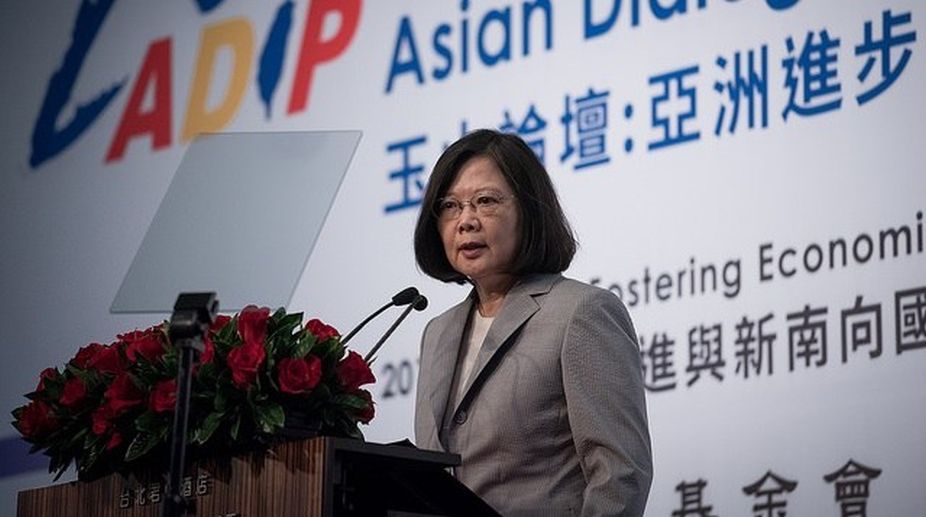President Tsai Ing-wen has pledged to establish a US$3.5 billion fund to help countries covered by Taiwan’s New Southbound Policy with their infrastructure and major development projects.
Tsai gave her promise while addressing the opening of the two-day Yushan Forum on Wednesday, sponsored by the government-affiliated Prospect Foundation, to help her administration promote the New Southbound Policy (NSP).
The NSP seeks to increase cooperation with Southeast Asian and South Asian countries, as well as New Zealand and Australia, as a means of reducing Taiwan’s trade and investment reliance on China.
“We’re here today because all of us hold a collective interest in the future development of this region. The rise of Asia is already one of the most momentous changes in this generation. It has profoundly influenced both international security and the world economy,” she said.
Of the countries covered by her New Southbound Policy, she said she has visited India, Indonesia, Malaysia, the Philippines, Singapore and Thailand.
“I have seen first-hand not only their storied histories and vibrant cultures, but also their high degree of interconnectivity with the rest of the world,” she said.
Taiwan has always played an indispensable role in the development of Asia, according to the president. “Over the years, we’ve been a source of capital, technology and technical know-how. We have also built up enduring economic and industrial linkages with countries in Southeast Asia,” she added.
As rapid economic, social and political changes in the region are bringing a host of new opportunities and challenges, she said, Taiwan must play an even more active and prominent role in order to participate in the future of the region.
“Redefining Taiwan’s role in the region is one of my highest priorities as president,” Tsai said, describing the New Southbound Policy as Taiwan’s “regional strategy for Asia.” Under this policy, Taiwan intends to work with countries in the region and around the world to deepen and broaden its presence in South and Southeast Asia, she went on.
She noted that the New Southbound Policy is designed to complement, rather than compete against, other proposed or existing free trade agreements in the region.
“With our New Southbound Policy, one of our foremost objectives is to strengthen cooperation in terms of resources, talent and market development. We want our private and public sectors to work together to forge mutually beneficial ties, generate sustained economic growth, and improve people’s lives in the region,” she said.
In order to fulfill the region’s needs and strengthen its sense of inclusiveness and community, the president continued, Taiwan will help nurture and empower the talent the region needs.
“Already we are providing many scholarships and educational opportunities to bring students from New Southbound countries to Taiwan. We are also expanding work-study course offerings, with a target of 5,000 students each year. These efforts will turn Taiwan into an Asian hub for industry talent development,” she said.
Taiwan will share its experiences to help New Southbound Policy countries establish domestic demand-driven industries.
For example, Taiwan’s industry development experience in fields such as petrochemicals, information and communication technology, and the medical sector, can help inject new driving force into New Southbound Policy countries.
“We will also help New Southbound countries with their infrastructure and major development projects. To achieve this, we will establish a US$3.5 billion financing facility to be managed under our Official Development Assistance program — the Taiwanese version of ODA,” she said.
The participants in the forum, who have come from over 20 countries, include: former Philippine Vice President Jejomar Binay, former Republic of Korea Deputy Prime Minister Hyun Oh-seok; former Indonesian Coordinating Minister Rizal Ramli, and former Foreign
Minister Kasit Piromya of Thailand.
Other dignitaries include former Japanese Defense Minister Kazuo Aichi and former Agriculture Minister Tamazawa, former American Institute in Taiwan Chairman Burghardt, and Deputy Associate Administrator Michele Schimpp of the U.S. Small Business Administration. •











